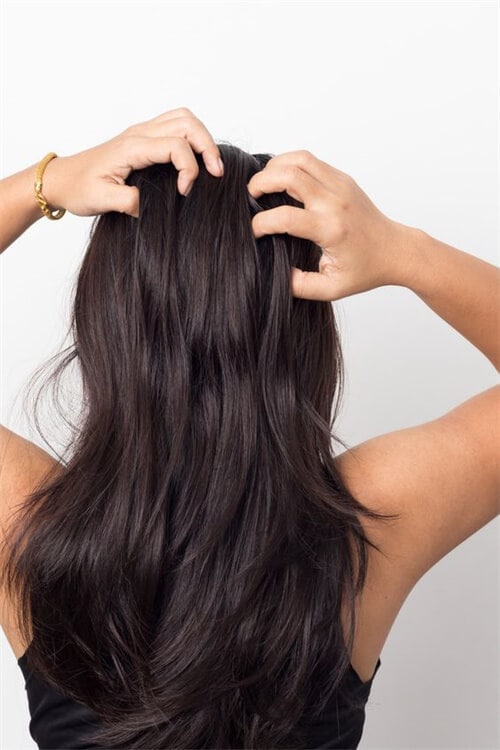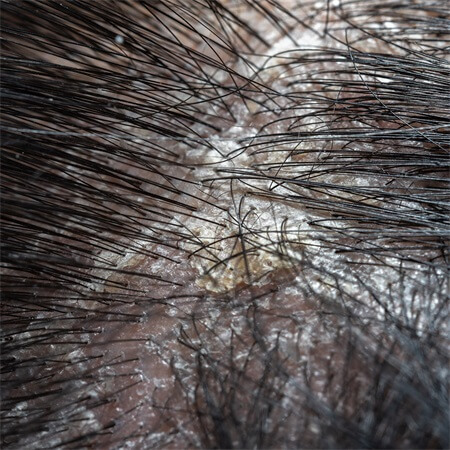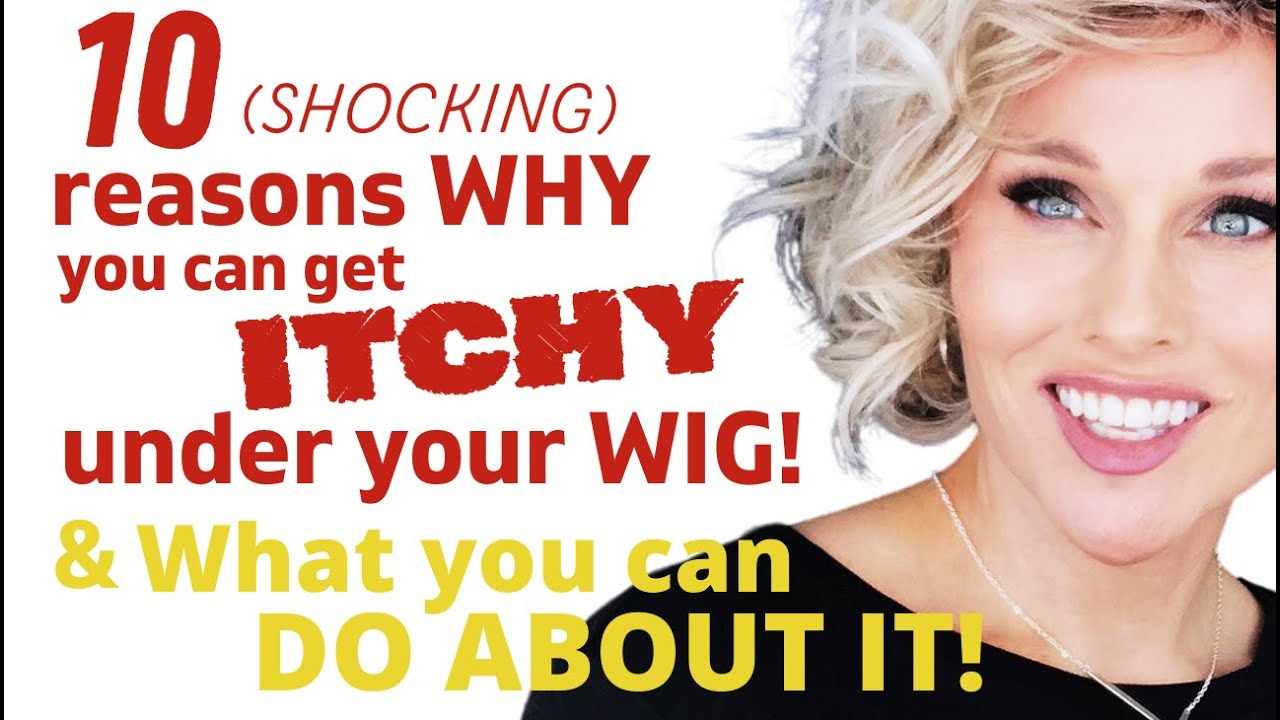So, you’re curious about whether wearing ginger wigs can cause itchiness, huh? Well, it’s a valid question, especially if you’re considering rocking a new hairstyle with a ginger wig. Many people love the vibrant and unique look that ginger wigs provide, but no one wants to deal with the discomfort of an itchy scalp. In this article, we’ll dive into the details and discuss whether ginger wigs can potentially cause that dreaded itchiness.
If you’re currently wearing a ginger wig or planning to get one, you might want to stick around because we’ll provide you with some helpful tips and tricks to alleviate any itchiness that you might experience. We’ll also explore reasons why ginger wigs can sometimes cause itchiness, such as the materials used, proper wig care, and potential allergic reactions. So, if you’re ready to learn more about this topic and find out how to keep your scalp itch-free while rocking that fabulous ginger wig, keep reading! When it comes to ginger wigs, one common concern that people have is whether or not they cause itchiness. It’s understandable to be worried about discomfort when wearing a wig, especially if you plan on using it for extended periods of time. In this article, we will explore the potential causes of itchiness in ginger wigs and provide tips on how to reduce and prevent it. So, if you’re curious about whether or not ginger wigs are itchy, keep reading to find out more.

Definition of ginger wigs
Ginger wigs refer to wigs that are designed to mimic the appearance of ginger hair. They are typically available in various shades of red, ranging from bright orange-red to deeper auburn hues. Ginger wigs can be made from different types of materials, including synthetic fibers, human hair, or a combination of both.
Different types of ginger wigs
There are several different types of ginger wigs available on the market. The type you choose can significantly impact the level of itchiness you may experience. Here are some of the common options:
-
Synthetic fibers: Synthetic ginger wigs are made from man-made materials such as acrylic, polyester, or a blend of synthetic fibers. They are typically more affordable and require less maintenance compared to wigs made from human hair. However, synthetic wigs may be more prone to causing itchiness due to the texture and breathability of the fibers.
-
Human hair: Ginger wigs made from human hair provide a more natural look and feel. They are often considered to be more comfortable to wear since the hair is real and can be styled just like natural hair. However, the quality and source of the human hair used in the wig can influence its comfort level. It’s essential to choose high-quality human hair wigs to minimize any potential itchiness.
-
Mixed fibers: Some ginger wigs are made from a combination of synthetic and human hair fibers. These wigs offer the benefits of both materials, providing a natural appearance while also maintaining affordability and ease of care. The ratio of synthetic to human hair in these wigs can vary, affecting their level of itchiness.
Overview of itchiness
Now that we have a better understanding of ginger wigs, let’s delve into the topic of itchiness. Itchiness is a common concern among wig wearers, regardless of the wig’s color or type. It can be an uncomfortable sensation that ranges from a mild annoyance to a significant distraction. Understanding the potential causes of itchiness can help you address and prevent it effectively.
What is itchiness?
Itchiness, also known as pruritus, is a sensation that prompts a desire to scratch the affected area. It can occur on the scalp when wearing a wig or in other parts of the body. Itchiness can vary in intensity and duration, depending on the underlying cause. While itchy scalp may be a common symptom of wearing ginger wigs, it’s essential to determine the specific factors contributing to the discomfort.

Common causes of itchiness
There are various factors that can cause itchiness when wearing ginger wigs. These include:
-
Material of ginger wigs: The type of material used in the construction of the wig can play a significant role in whether or not it causes itchiness. Some materials may not allow proper air circulation, causing heat and moisture to accumulate on the scalp, leading to itchiness.
-
Fitting and size of ginger wigs: Ill-fitting wigs can cause friction and pressure on the scalp, leading to irritation and itchiness. It’s crucial to choose a wig that fits properly and offers a comfortable and secure fit.
-
Hygiene and cleanliness: Failure to clean the wig regularly and maintain proper hygiene can result in the accumulation of dirt, oils, and sweat on the scalp. This can lead to itchiness and discomfort.
-
Individual sensitivity to ginger wigs: Everyone’s scalp is unique, and some individuals may be more sensitive to certain materials or hair treatments. If you have a preexisting sensitivity or allergic reaction to ginger wigs, it can contribute to itchiness.
Materials commonly used in ginger wigs
To understand the potential causes of itchiness in ginger wigs, let’s take a closer look at the materials commonly used in their construction.
Synthetic fibers
Synthetic ginger wigs are made from artificial materials such as acrylic, polyester, or a blend of synthetic fibers. They are often pre-styled and can withstand heat styling to a certain extent. While synthetic wigs have improved significantly in terms of appearance and comfort, some individuals may find them to be more prone to itchiness.
The synthetic fibers used in the wig can be rougher and less breathable than natural human hair. This lack of breathability can cause heat and moisture to build up on the scalp, leading to itchiness. However, advancements in synthetic wig technology have resulted in more lightweight and breathable options, reducing the likelihood of itchiness.
Human hair
Ginger wigs made from human hair offer the most natural look and feel. They can be styled and treated just like natural hair, providing versatility and comfort. The quality of the human hair used in the wig can significantly impact the level of itchiness experienced.
Higher-quality human hair wigs are often sourced from donors and undergo minimal chemical processing. These wigs tend to be more comfortable and less likely to cause itchiness. On the other hand, low-quality human hair wigs may contain harsh chemical treatments or lower-grade hair, leading to potential scalp irritation and itchiness.
Mixed fibers
Some ginger wigs are made from a combination of synthetic and human hair fibers. These wigs aim to provide the benefits of both materials, offering a natural appearance while maintaining affordability and ease of care. The presence of synthetic fibers can affect the breathability and itchiness of the wig. Opting for a higher percentage of human hair in the blend can minimize the risk of discomfort.

Allergic reactions and itchiness
Allergic reactions can also contribute to itchiness when wearing ginger wigs. It’s crucial to be aware of the signs and symptoms of allergies related to wigs.
Signs of allergic reactions
- Itchy scalp or skin
- Redness or rash
- Swelling
- Tenderness or sensitivity
- Flaky or dry skin
- Blisters or bumps
If you experience any of these symptoms after wearing a ginger wig, it’s possible that you may be allergic to the materials used in the construction of the wig. It’s recommended to discontinue use and seek professional advice from a dermatologist or trichologist.
Specific allergies related to ginger wigs
Some individuals may have specific allergies to certain materials commonly used in ginger wigs. For example, some people may be allergic to synthetic fibers such as acrylic or polyester. Others may have a reaction to certain dyes or chemicals used in the wig’s construction. If you know you have allergies to specific materials or substances, it’s important to carefully review the wig’s composition and avoid any potential triggers.
Treating and preventing allergic reactions
If you suspect that you have an allergy to your ginger wig, it’s essential to seek professional advice from a dermatologist or trichologist. They can help determine the specific allergen and provide appropriate treatment or guidance.
Preventing allergic reactions can involve avoiding known allergens or opting for wigs made from hypoallergenic materials. It’s also important to maintain good hygiene and cleanliness by regularly washing your wig and keeping your scalp clean.
Tips for reducing itchiness while wearing ginger wigs
Now that we have explored the potential causes of itchiness in ginger wigs, let’s discuss some tips to help reduce and prevent it. These tips can help ensure a more comfortable wig-wearing experience:
Regular hair and scalp care
Maintaining good hygiene and taking care of your hair and scalp is essential when wearing any wig, including ginger wigs. Regularly washing your natural hair and using appropriate hair care products can help minimize scalp irritation and itchiness. Keeping your scalp clean and healthy can also contribute to overall wig comfort.
Choosing the right size and fit
Ensuring that your ginger wig fits properly is crucial for minimizing itchiness. Ill-fitting wigs can cause friction and irritation, leading to discomfort. Take accurate measurements of your head and choose a wig size that matches those measurements. If you’re unsure, consult with a professional wig fitter who can help you find the perfect fit.
Using wig cap or protective barrier
Wearing a wig cap or using a protective barrier can create a barrier between your scalp and the wig, reducing friction and irritation. Wig caps can also help to absorb sweat and oils, preventing them from accumulating on the scalp.
Taking breaks and letting the scalp breathe
Give your scalp a break from wearing wigs by regularly removing them and allowing your scalp to breathe. This can help reduce the risk of heat and moisture build-up, contributing to itchiness. Taking breaks can also prevent scalp sensitivity and improve overall comfort.

Proper maintenance and care of ginger wigs
To prolong the lifespan of your ginger wig and minimize itchiness, proper maintenance and care are essential. Here are some tips for keeping your ginger wig in optimal condition:
Cleaning and washing techniques
Follow the manufacturer’s instructions for cleaning and washing your ginger wig. Use gentle wig-specific shampoos and conditioners to clean the wig without causing damage. Avoid aggressive scrubbing or rubbing, as this can lead to tangling and potential itchiness. Allow the wig to air dry naturally or use a low-heat setting on a hairdryer if needed.
Storing and protecting ginger wigs
Proper storage and protection of ginger wigs can prevent dust, dirt, and damage that can contribute to itchiness. When not in use, store the wig on a wig stand or mannequin head to maintain its shape. Use a wig cover or breathable bag to protect the wig from dust and keep it clean.
Replacing worn-out or damaged wigs
Over time, ginger wigs can become worn out, damaged, or lose their quality. If you notice any signs of excessive shedding, tangling, or reduced comfort, it may be time to consider replacing the wig. Wearing an old or damaged wig can increase the likelihood of itchiness and discomfort.
Seeking professional advice
If you’ve tried various tips and techniques to reduce itchiness in your ginger wig but haven’t found relief, it may be beneficial to seek professional advice. Consulting with a dermatologist or trichologist can help identify any underlying scalp conditions or specific sensitivities that may be contributing to the itchiness. They can provide personalized recommendations and treatments to alleviate discomfort.
Additionally, getting a proper wig fitting from a professional can ensure that you’re wearing the right size and style of wig for your needs. They can help address any fit-related issues that may be causing itchiness and recommend alternative wig options if necessary.

Personal experiences of wearing ginger wigs
Sometimes, personal testimonials can provide valuable insights and tips for wearing ginger wigs comfortably. Here are a few experiences and tips from wig enthusiasts:
- “I found that using a gentle, sulfate-free shampoo and conditioner specifically formulated for wigs made a huge difference in reducing itchiness.”
- “Investing in a high-quality, human hair ginger wig was the best decision I made. It feels just like my natural hair and doesn’t cause any irritation or itchiness.”
- “Wearing a wig cap or applying a moisturizer on my scalp before putting on the ginger wig helped reduce any discomfort and itchiness.”
- “I discovered that taking regular breaks from wearing wigs and giving my scalp time to breathe significantly improved my overall comfort.”
Remember that everyone’s experience with ginger wigs can be different, and it’s essential to find what works best for you. Experiment with different techniques and tips to find the most comfortable and itch-free wig-wearing experience.
Comparing ginger wigs to other types of wigs
While we have focused specifically on ginger wigs in this article, it’s worth noting that itchiness can be a concern with wigs of any color or material. However, there may be some variations in itchiness between ginger wigs and wigs of other colors. Factors such as dyeing processes, material textures, and individual sensitivities can influence the level of itchiness experienced. It’s always recommended to test different wig options and materials to find the most comfortable fit for you.
Alternative options for itch-free wig-wearing
If you find that wearing ginger wigs causes persistent itchiness or discomfort, there are alternative options to achieve the appearance of ginger hair without wearing a wig. Consider the following alternatives:
Non-wig solutions for ginger hair appearance
-
Hairpieces and extensions: Hairpieces and extensions can be used to add volume and color to your natural hair, providing the appearance of ginger hair without the need for a full wig. These can be clipped, taped, or woven into your existing hair for a seamless look.
-
Topper or hair topper: Toppers are small hairpieces that cover specific areas of the scalp, such as the crown or the front hairline. They can be used to add volume or cover thinning areas while blending with your natural hair color.
Hair dyeing and coloring options
If you’re looking for a more permanent solution, dyeing or coloring your natural hair can achieve the desired ginger hair appearance. Consulting with a professional hairstylist can help determine the best dyeing techniques and ensure that the process is done safely and effectively.
Conclusion
In summary, wearing ginger wigs does not inherently cause itchiness. The choice of materials, fitting, hygiene, and individual sensitivities can all contribute to potential itchiness. By understanding these factors and implementing proper care and maintenance techniques, you can minimize itchiness and enjoy a comfortable wig-wearing experience.
Remember to prioritize your comfort and seek professional advice if you experience persistent itchiness or discomfort with your ginger wig. With the right precautions and attention to your scalp’s health, you can confidently wear ginger wigs and achieve the look you desire.
